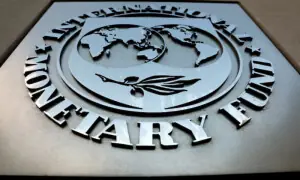How will the Iran-Israel War affect global trade?
Tensions are soaring and the world is watching with bated breath as the conflict between Iran and Israel intensifies.
Beyond the immediate human cost, a major concern is the potential impact on global trade, especially with the recent US strikes on Iranian nuclear sites. Here’s a breakdown of the key factors at play:
The Strait of Hormuz: A Critical Chokepoint
The Strait of Hormuz is a narrow waterway between Oman and Iran. It connects the Persian Gulf to the Gulf of Oman and the Arabian Sea. Its strategic importance cannot be overstated, as it serves as a vital oil trade route where a staggering one-fifth of the world’s oil and petroleum consumption passes daily.
In 2024, this amounted to over a quarter of the global maritime oil trade, according to the EIA (US Energy Information Administration). Additionally, the strait is crucial for liquefied natural gas (LNG) transport, with approximately one-fifth of global LNG trade transiting through it, primarily from Qatar. Given the limited alternatives available for moving oil out of the strait, any disruption would have dire consequences.
Iran has the power to disrupt the Strait, and closing it would severely impact countries like China, India, Japan, and South Korea, which rely heavily on it for oil and gas imports. Even a partial or temporary closure could send oil prices skyrocketing. Goldman Sachs suggests that a worst-case scenario involving blockades could push prices above $100 per barrel.
Impact on oil prices
Oil prices have already seen a significant increase amid escalating tensions, crossing $78 per barrel for the first time since January.
In an industry report, JP Morgan mentioned how the oil prices gained 3.6 per cent, crossing $78 per barrel for the first time since January amid the fears of the escalating situation in the Middle East.
If geopolitical tensions escalate further, analysts predict that oil prices could potentially rise as high as $120 per barrel. Moreover, a potential regime change in Iran, the third-largest oil producer among OPEC nations, could have an even greater impact on global oil prices, potentially exceeding the repercussions of the 2011 Libyan revolution 4.
Aviation sector disruption
The conflict is causing significant disruption to air travel, with several airlines suspending or cancelling flights to Middle Eastern destinations due to airspace closures and safety concerns.
According to Al-Jazeera news, Emirates has suspended flights to Iraq, Jordan, Lebanon, and Iran until June 30. Etihad Airways has cancelled flights between Abu Dhabi and Tel Aviv until June 30. Additionally, Qatar Airways has temporarily cancelled flights to Iran, Iraq, and Syria. Countries like Iraq and Jordan have also closed their airspace, further complicating air travel in the region.
Impact on India
India, a major importer of oil, faces substantial risks due to the potential disruption of the Strait of Hormuz. A significant percentage of its crude imports pass through this route, and any blockage could severely affect the country’s energy security.
Union Oil Minister Hardeep Singh Puri assured citizens of stable energy supply, citing significant diversification of oil import routes in recent years 6.
Increased shipping costs and insurance premiums are likely to drive up inflation, complicating the economic landscape. Furthermore, trade with Iran, Israel, and other West Asian nations could suffer as a result of heightened tensions.
Broader economic consequences
Rising oil prices and supply chain disruptions could lead to increased inflation worldwide. The potential for blockades, attacks on shipping, and prohibitive insurance costs may result in severe shortages of goods, halting many manufacturing processes.
Elevated uncertainty could lead businesses and consumers to adopt more cautious behavior, delaying investment and spending decisions.
According to Dr. Fawaz Al-Alamy, a specialist in international trade, the continuing geopolitical unrest is likely to slow global trade growth by over 7% in 2025 and 2026.
The Iran-Israel conflict poses a significant threat to global trade. The potential closure of the Strait of Hormuz, rising oil prices, and disruptions to air travel could have far-reaching economic consequences. The situation demands careful monitoring, and businesses and governments need to prepare for potential disruptions and increased costs. 4
For the latest news, follow us on Twitter @Aaj_Urdu. We are also on Facebook, Instagram and YouTube.


























Comments are closed on this story.